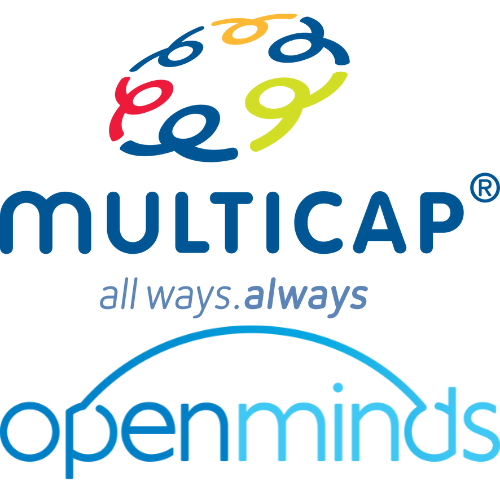
FOCUS TOPIC
Navigating Ethical Challenges of Artificial Intelligence in Behaviour Analytic Practice: Risks, Strategies, and Decision-Making
Anna Plessas1, Adrienne M. Jennings2, Kelly King3, Andrea Murray4, & Mahin Para-Cremer5
1Behavioural Health-Te toi o te Haumanu Whanonga, 2Daemen University, 3Central Reach, 4Capella University, 5Autism Learning Partners |
Abstract
The increasing integration of artificial intelligence (AI) into behaviour-analytic practice presents unique ethical challenges that must be addressed to ensure safe, effective, and ethical service delivery. In this presentation, we will delve into the core ethical issues arising from the use of AI, focusing on truthfulness, accountability, transparency, and client welfare.
As AI systems continue to gain traction in applied behaviour analysis, behaviour analysts are required to develop and adhere to clear ethical guidelines to mitigate risks such as bias, data security breaches, lack of transparency, and over-reliance on AI tools without sufficient human oversight. This presentation will provide behaviour analysts with a structured overview of the Ethics & Applications of AI in ABA, offering practical insights into AI integration, and best practices for ethical implementation.
Attendees will learn how to identify and address key ethical risks, apply robust decision-making frameworks and best practices to ensure that the use of AI in behaviour-analytic practice is aligned with core ethical principles. By taking a proactive approach to AI ethics, we can ensure that AI enhances—rather than replaces—human judgment in ABA, thus fostering trust and safeguarding the integrity of services.
Learning Objectives
1) At the conclusion of this presentation, participants will be able to identify ethical risks in AI integration – Attendees will be able to recognise key ethical challenges associated with AI in behaviour analytic practice, including bias, data security, lack of transparency, and over-reliance on AI tools.
2) At the conclusion of this presentation, participants will be able to apply ethical decision-making frameworks – Attendees will learn to apply established ethical frameworks to evaluate AI applications in ABA, ensuring responsible implementation that upholds client welfare and professional integrity.
3) At the conclusion of this presentation, participants will be able to understand best practices for AI use in ABA – Attendees will gain knowledge for integrating AI in behaviour analytic practice while maintaining human oversight, accountability, and adherence to ethical guidelines.
Biography
Presenter: Dr Anna Plessas, BPsych(Hons), MEd, BCBA, MSc, PGDipPracPsych, PhD
Dr Anna Plessas is a Registered Psychologist in New Zealand and a Board Certified Behaviour Analyst, and the co-founder of Behavioural Health. With over 25 years of experience, she specialises in the diagnosis, psychoeducation, and therapeutic support of neurodiverse individuals without intellectual disability. Her international work experience spans multiple countries, providing her with a broad and diverse perspective on neurodivergence and mental health. Dr Plessas also serves as the Vice-President of a non-profit organisation (Monorodi) in Athens, Greece, which supports families of neurodivergent individuals.
Her research interests focus on the clinical applications of artificial intelligence (AI) and its ethical use in psychological practice. She is particularly interested in how AI can be used to enhance clinical decision-making and personalise interventions for neurodiverse individuals, while ensuring that ethical considerations such as cultural sensitivity and fairness are prioritised.
Co-Authors:
Dr. Adrienne Jennings is an Assistant Professor in the Behavioral Science department at Daemen University, a doctoral-level Board Certified Behavior Analyst, and a Licensed Behavior Analyst in the state of New York. She consults and provides staff training to local Boys and Girls Clubs. Her research interests include the acquisition and development of verbal behavior, the role of verbal behavior in learning, dissemination and cultural adaptation
Kelly King, M.Ed., BCBA, LBS, AI & Innovation Specialist at CentralReach
Andrea Murray, PhD, BCBA-D, LBA-TX, Assistant Program Director, Capella University
Mahin Para-Cremer is a Board-Certified and Licensed Behavior Analyst in Kansas and Wisconsin. Mahin has led the development and implementation of clinical and organizational systems that support clinical quality and outcomes. She has served as the product owner for clinical decision support technology, leading the development, implementation, and user support activities. Mahin teaches in special education and applied behavior analysis and has held both clinical and operational leadership roles across diverse service settings. Her clinical work spans autism, brain injury, intellectual disabilities, and co-occurring mental health conditions. Mahin currently serves as President-Elect for APBA and on the Board for a non-profit dedicated to promoting justice and social change.
Target Audience: Behaviour analysts and related professionals, AI developers
Duration: 1 hr 15 min
PDUs/CEs: 1.5 Ethics




.png)


